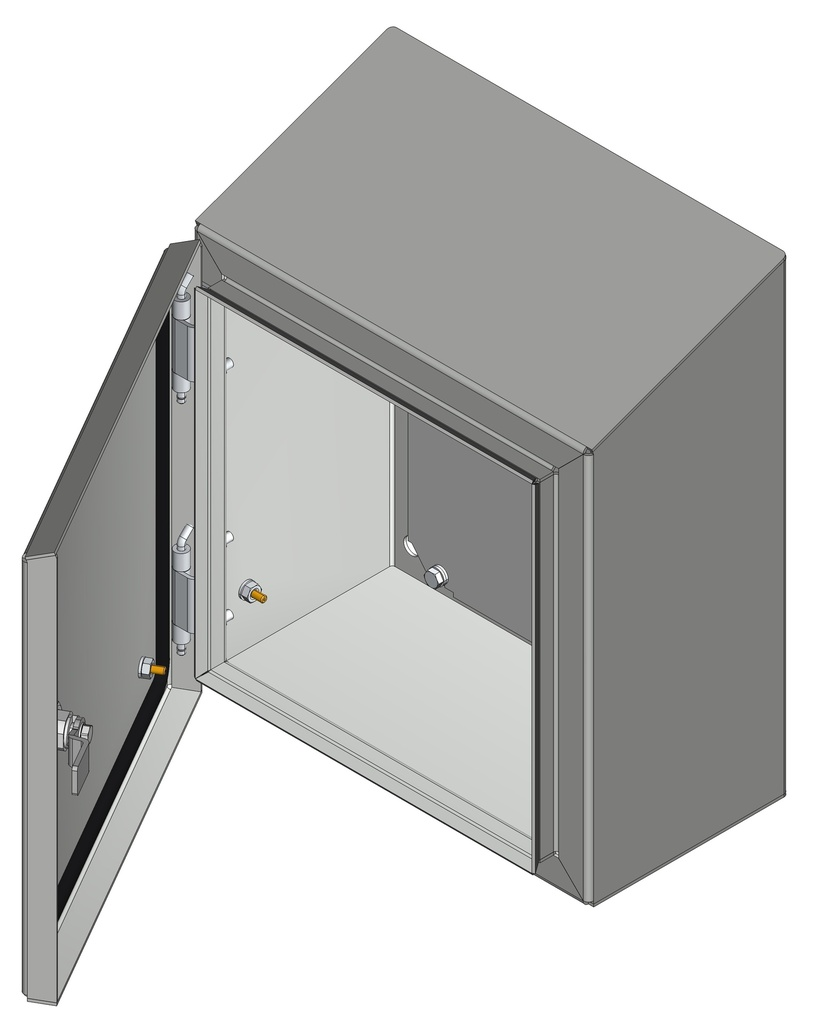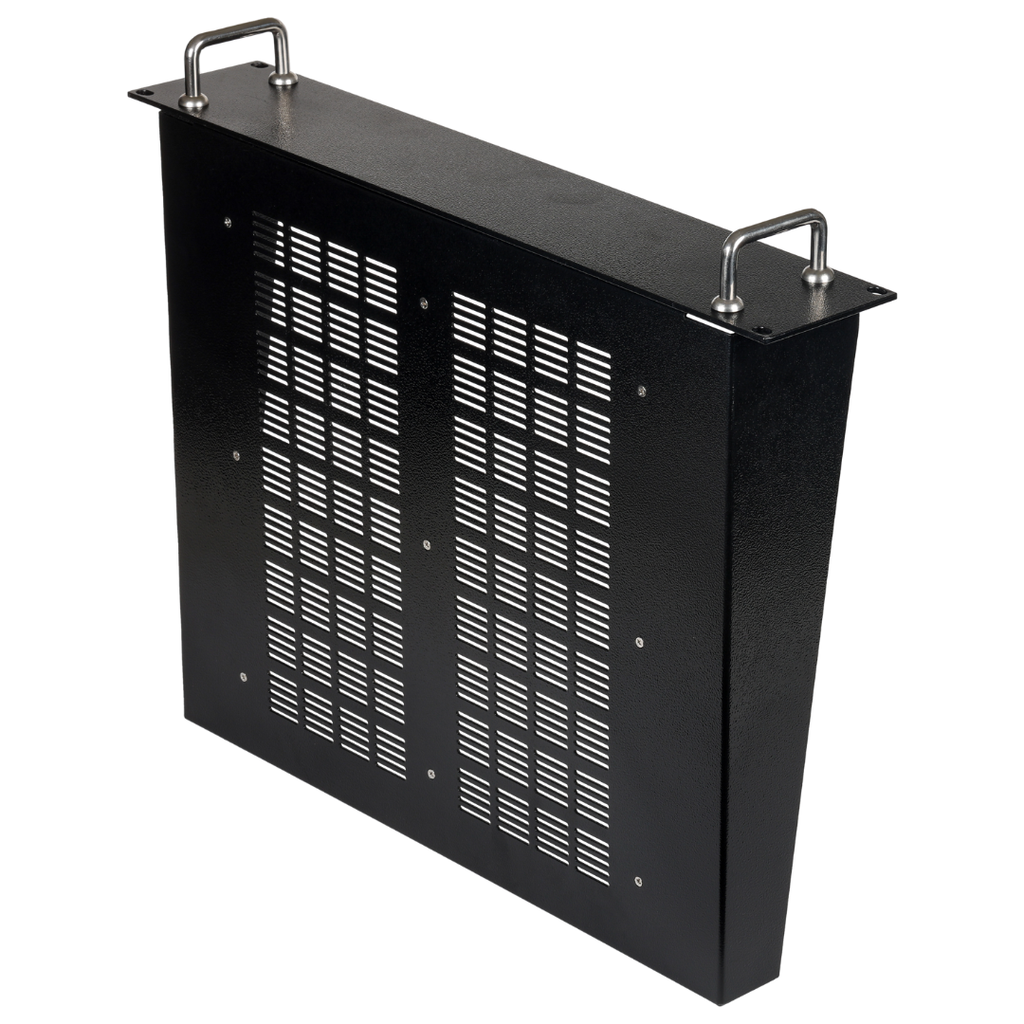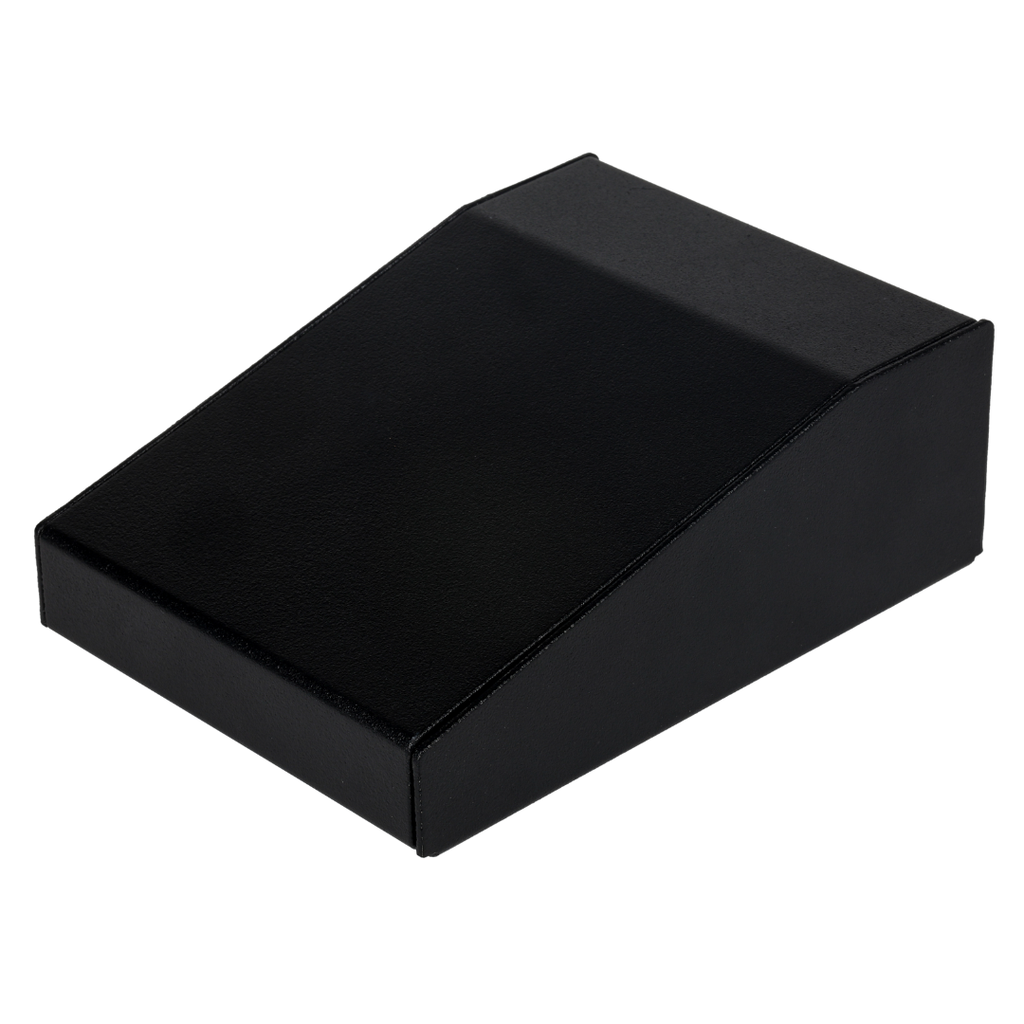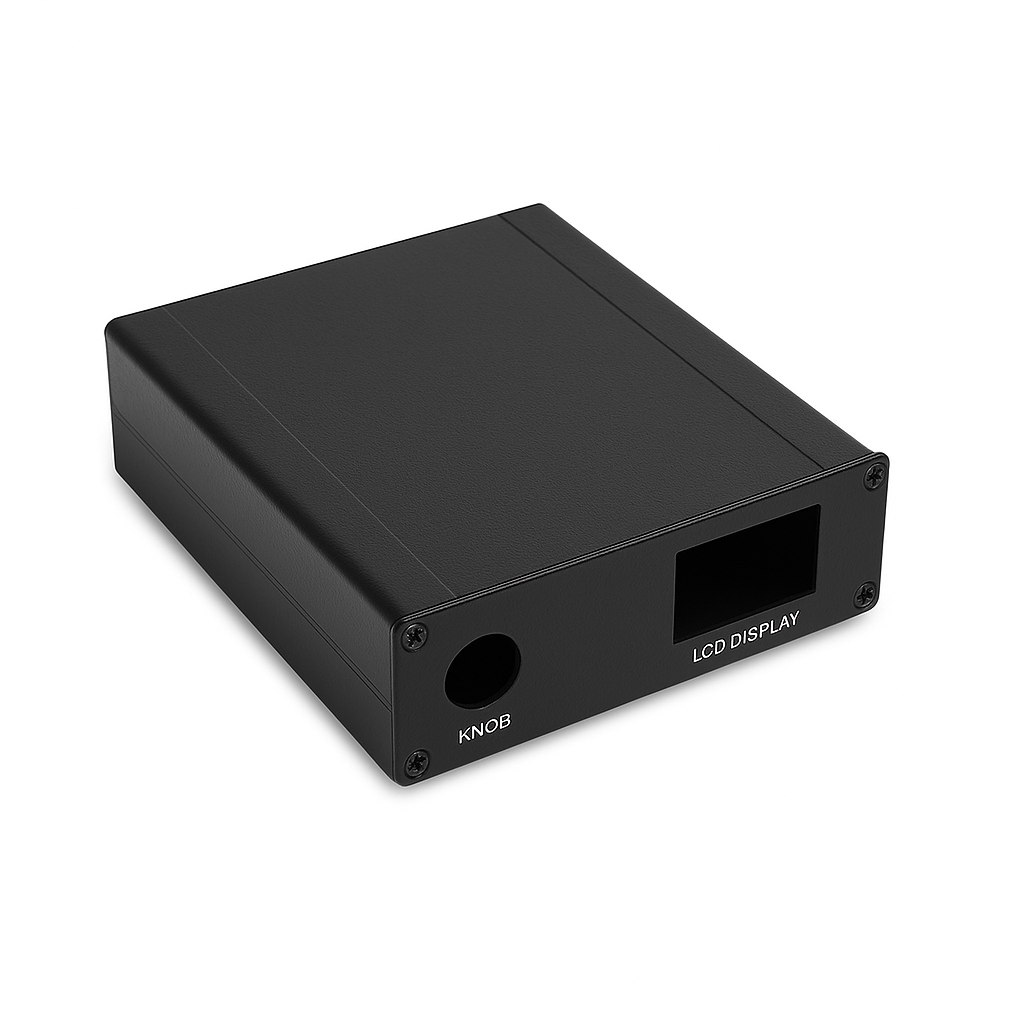What Is a Metal Enclosure? Types, Applications, and Benefits Explained
Safeguarding industrial machines, servers, and outdoor electrical systems from environmental factors is critical to ensure reliable performance and long-term safety. One solution that works like a protective shell is a metal enclosure designed to keep sensitive equipment secure against dust, moisture, heat, and physical impact.
In this blog, we’ll break down what metal enclosures are, the different types you can choose from, where they’re used, and why they’re such a reliable choice for protecting your equipment
What is a Metal Enclosure?
A metal enclosure is a carefully designed and manufactured case from materials such as aluminum, steel, or copper. It is engineered to strengthen equipment, ensure operational reliability, and extend service life.
Metal enclosures are valued for their durability and ability to withstand hazardous conditions. They protect internal components from dust, moisture, and chemicals while providing grounding that keeps electrical systems safe from short circuits.
Types of Metal Enclosures
Metal enclosures come in a range of types, each designed for specific needs. We at Mech Power offer a full range of metal enclosures with in-house sheet metal fabrication, CNC machining, Laser cutting, welding, and finishing. A few of the most common metal enclosure varieties are mentioned below:
Floor-standing enclosures: Designed for large-scale and heavy-duty applications, these enclosures sit directly on the floor and offer secure housing for electrical panels, machinery controls, and power distribution systems. With generous space for complex assemblies and durable construction, they deliver reliable protection in demanding industrial environments.
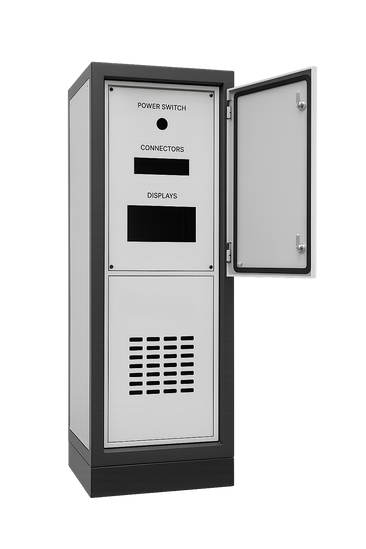
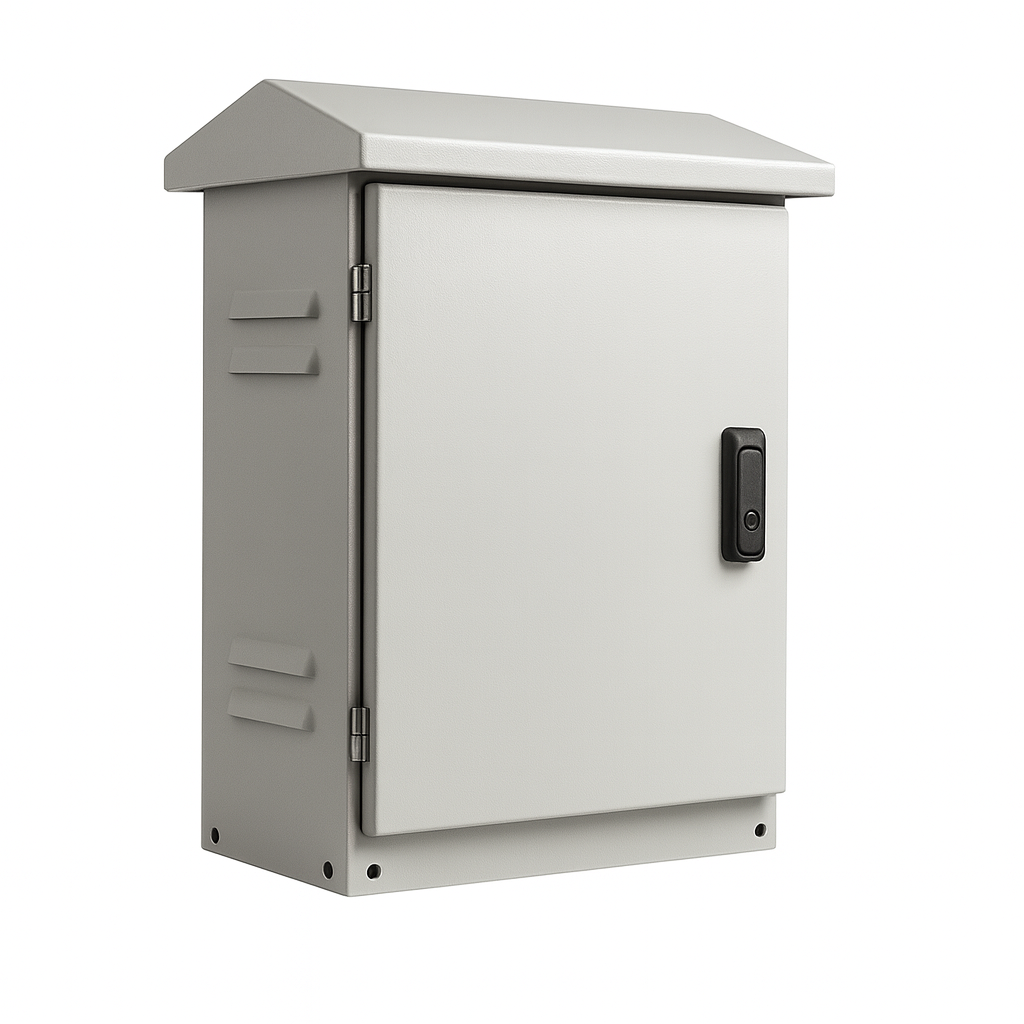
Outdoor-rated enclosures: Engineered to withstand harsh conditions such as rain, dust, UV exposure, and temperature extremes. These enclosures protect critical equipment like solar inverters, telecom gear, and energy systems in outdoor environments.
Junction boxes: Compact yet durable, junction boxes secure wiring connections and electrical junctions in both residential and industrial circuits. They keep sensitive connections safe from dust, moisture, and accidental contact.
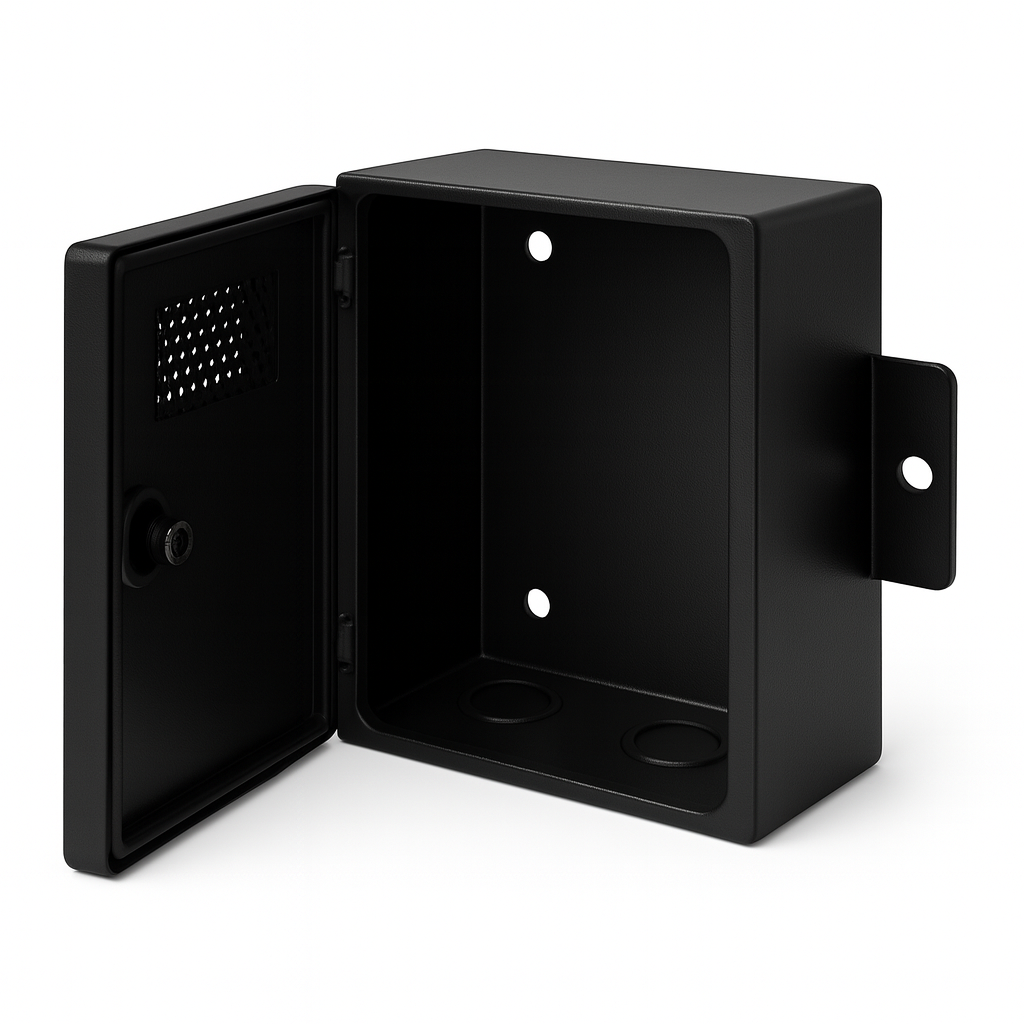
Applications of Metal Enclosures
Metal enclosures are preliminary used in many industries to keep the equipment safe and run smoothly. Some of its key applications are provided below:
- Industrial automation: In industries, the primary function of these enclosures is to protect control systems, sensors, inverters, and machine-critical parts from dust, moisture, or any sort of damage.
- Electrical distribution: Metal enclosures are used to house breakers, switches, control panels, or transformers. They make sure all these components are kept safe from any harm coming from outside.
- IT/server protection: In data centers, metal enclosures protect servers and electronic gear from overheating, dust, and physical damage.
- Telecommunications: Metal enclosures help to keep communication devices safe from different environmental factors and enable reliable signal transmission.
- Outdoor equipment housings: For equipment that is used outside such as solar panels or any other security systems, enclosures provide the best protection.
Benefits of Using Metal Enclosures
There are numerous benefits to using metal enclosures. Here are some of them:
- Durability and Strength: Built to withstand demanding environments, metal enclosures offer long service life and resist impact or mechanical stress far better than other materials.
- Fire and Heat Resistance: Metal hardly ever burns or melts; hence, it creates a safer environment for sensitive electrical and electronic systems.
- EMI shielding: Metal enclosures provide natural protection against electromagnetic interference, ensuring uninterrupted performance of electrical equipment.
- Weather protection: Metal enclosures are weatherproof. They are meant to guard outdoor equipment against rain, wind and temperatures.
- Cost Efficiency Over Time – Their robustness reduces maintenance needs and replacements, offering greater value and reliability in the long run.
Here’s a quick comparison of metal vs. plastic enclosures to help you choose the right fit for your application.
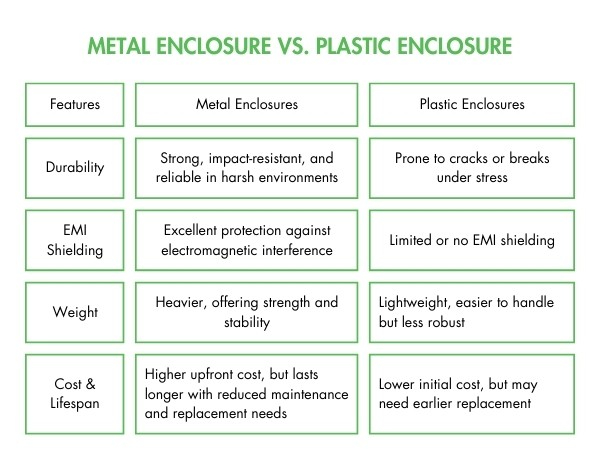
How to Choose the Right Metal Enclosure
Selecting the right metal enclosure is essential to keep your equipment protected and performing reliably. Here are the key factors to consider:
- Size – Ensure the enclosure comfortably fits all components, leaving room for wiring and safe clearances.
- Material – Steel offers higher strength and durability, while aluminum is lighter and better for weight-sensitive applications.
- IP Rating – Match the enclosure’s ingress protection rating with your environment, whether it’s dust-heavy shop floors or outdoor installations.
- Cooling & Ventilation – If your system generates heat, choose enclosures with ventilation slots or provisions for cooling solutions.
- Mounting Style – Pick between wall-mount, rack-mount, or floor-standing based on the space and application requirements.
And when standard choices don’t cover all your needs, Mech Power delivers custom-built enclosures — designed, machined, and finished with precision to match your exact specifications.
Final Thoughts
The role of a metal enclosure goes beyond housing components; it safeguards performance, extends product life, and ensures equipment can operate reliably even in demanding environments. From industrial automation to energy, telecom, and medical systems, enclosures remain the unsung backbone of dependable operations.
At Mech Power, our focus is on delivering enclosures that combine strength, precision, and consistency. By aligning design, fabrication, and finishing under one roof, we provide solutions that are as reliable as the systems they protect.
Explore Mech Power, from standard racks to fully customized metal enclosures.


